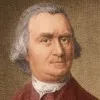And when you fast, do not put on a sad face as the hypocrites do. They neglect their appearance so that everyone will see that they are fasting. I assure you, they have already been paid in full. When you go without food, wash your face and comb your hair, so that others cannot know that you are fasting — only your Father, who is unseen, will know. And your Father, who sees what you do in private, will reward you.
[Ὅταν δὲ νηστεύητε, μὴ γίνεσθε ὡς οἱ ὑποκριταὶ σκυθρωποί, ἀφανίζουσιν γὰρ τὰ πρόσωπα αὐτῶν ὅπως φανῶσιν τοῖς ἀνθρώποις νηστεύοντες· ἀμὴν λέγω ὑμῖν, ἀπέχουσιν τὸν μισθὸν αὐτῶν. σὺ δὲ νηστεύων ἄλειψαί σου τὴν κεφαλὴν καὶ τὸ πρόσωπόν σου νίψαι, ὅπως μὴ φανῇς τοῖς ἀνθρώποις νηστεύων ἀλλὰ τῷ πατρί σου τῷ ἐν τῷ κρυφαίῳ· καὶ ὁ πατήρ σου ὁ βλέπων ἐν τῷ κρυφαίῳ ἀποδώσει σοι.]
The Bible (The New Testament) (AD 1st - 2nd C) Christian sacred scripture
Matthew 6: 16-18 (Jesus) [GNT (1966)]
(Source)
No Synoptic parallels.
(Source (Greek)). Alternate translations:Moreover when ye fast, be not, as the hypocrites, of a sad countenance: for they disfigure their faces, that they may appear unto men to fast. Verily I say unto you, They have their reward. But thou, when thou fastest, anoint thine head, and wash thy face; that thou appear not unto men to fast, but unto thy Father which is in secret: and thy Father, which seeth in secret, shall reward thee openly. [KJV (1611)]When you fast do not put on a gloomy look as the hypocrites do: they pull long faces to let men know they are fasting. I tell you solemnly, they have had their reward. But when you fast, put oil on your head and wash your face, so that no one will know you are fasting except your Father who sees all that is done in secret; and your Father who sees all that is done in secret will reward you. [JB (1966)]When you are fasting, do not put on a gloomy look as the hypocrites do: they go about looking unsightly to let people know they are fasting. In truth I tell you, they have had their reward. But when you fast, put scent on your head and wash your face, so that no one will know you are fasting except your Father who sees all that is done in secret; and your Father who sees all that is done in secret will reward you.
[NJB (1985)]And when you fast, don’t put on a sad face like the hypocrites. They distort their faces so people will know they are fasting. I assure you that they have their reward. When you fast, brush your hair and wash your face. Then you won’t look like you are fasting to people, but only to your Father who is present in that secret place. Your Father who sees in secret will reward you.
[CEB (2011)]And whenever you fast, do not look somber, like the hypocrites, for they mark their faces to show others that they are fasting. Truly I tell you, they have received their reward. But when you fast, put oil on your head and wash your face, so that your fasting may be seen not by others but by your Father who is in secret, and your Father who sees in secret will reward you.
[NRSV (2021 ed.)]
The NRSV notes some early manuscripts have the Father rewarding you "openly," which the KJV uses.
Quotations about:
hypocrite
Note not all quotations have been tagged, so Search may find additional quotes on this topic.
CLÉANTE: There’s true and false in piety, as in bravery,
And just as those whose courage shines the most
In battle, are the least inclined to boast,
So those whose hearts are truly pure and lowly
Don’t make a flashy show of being holy.[Il est de faux dévots ainsi que de faux braves:
Et, comme on ne voit pas qu’où l’honneur les conduit
Les vrais braves soient ceux qui font beaucoup de bruit,
Les bons et vrais dévots, qu’on doit suivre à la trace,
Ne sont pas ceux aussi qui font tant de grimace.]Molière (1622-1673) French playwright, actor [stage name for Jean-Baptiste Poquelin]
Tartuffe, or the Hypocrite [Le Tartuffe, ou L’Imposteur], Act 1, sc. 6 (1669) [tr. Wilbur (1963)]
(Source)
(Source (French)). Alternate translations:There are Pretenders to Devotion as well as to Courage. And as we never find the truly Brave to be such as make much Noise wheresoever they are led by Honour, so the Good and truly Pious, who are worthy of our Imitation, are never those that deal much in Grimace.
[tr. Clitandre (1672)]There are hypocrites in religion as well as pretenders to courage; and as we never find the truly brave man make much noise where honour leads him, no more are the good and truly pious, whom we ought to follow, those who make so many grimaces.
[tr. Van Laun (1876)]Devotion, like courage, has its pretenders' and in the same way that the truly brave are not those who make the most noise where honour leads them, so the real and truly pious men whose example we ought to follow, are not those who affect such grimaces.
[tr. Wall (1879)]There are hypocrites in religion as well as pretenders to courage; and as we never find the truly brave to be such as make much noise wherever they are led. by honour, so the good and truly pious, who are worthy of our imitation, are never those who indulge in much show.
[tr. Mathew (1890)]There are pretenders to devotion as to courage; and even as those who are truly brave when honour calls are not those who make the most noise, so the good and truly pious, in whose footsteps we ought to follow, are not thoae who make so many grimaces.
[tr. Waller (1903), sc. 5]There are false heroes -- and false devotees;
And as true heroes never are the ones
Who make much noise about their deeds of honour,
Just so true devotees, whom we should follow,
Are not the ones who make so much vain show.
[tr. Page (1909)]There's false devotion like false bravery.
And as you see upon the field of honor
The really brave are not the noisiest ones,
The truly pious, whom we should imitate,
Are not the ones who show off their devotion.
[tr. Bishop (1957), sc. 5]Like courage, piety has its hypocrites.
Just as we see, where honor beckons most
The truly brave are not the ones who boast;
The truly pious people, even so,
Are not the ones who make the biggest show.
[tr. Frame (1967). sc. 5]If there's false courage, then, God knows,
There is false piety as well:
The brave man you can always tell
By how he doesn't rant and roar
And bluster, in the heat of war.
How may pious men be known?
They don't pull faces, sigh and groan.
[tr. Bolt (2002)]Look: some people pretend to be religious the way others pretend to be brave. We can recognize brave people by what honor has pushed them to do, but the truly pious, whom one should imitate, don't smirk and show off.
[tr. Steiner (2008)]The falsely devout are like the falsely brave;
And as we see that those who make the most noise
Are not the bravest when the moment comes,
So the truly good, the truly devout,
Are not the ones making all this racket about it.
[tr. Campbell (2013)]
When he [Bishop Myriel] saw everyone condemning very loudly and being very quick to express indignation, “Oh my,” he would say with a smile, “this looks like being a great crime that everyone commits. Here we have hypocrisies in fright, hurrying to protest and to take cover.”
[Quand il voyait tout le monde crier bien fort et s’indigner bien vite: — «Oh! oh! disait-il en souriant, il y a apparence que ceci est un gros crime que tout le monde commet. Voilà les hypocrisies effarées qui se dépêchent de protester et de se mettre à couvert.»]
Victor Hugo (1802-1885) French writer
Les Misérables, Part 1 “Fantine,” Book 1 “An Upright Man,” ch. 4 (1.1.4) (1862) [tr. Donougher (2013)]
(Source)
(Source (French)). Alternate translations:When he heard many exclaiming, and expressing great indignation against anything, “Oh! oh!” he would say, smiling. “It would seem that this is a great crime, of which they are all guilty. How frightened hypocrisy hastens to defend itself, and to get under cover.”
[tr. Wilbour (1862)]When he saw everybody cry out and grow indignant, all of a sudden, he would say with a smile, “Oh! oh, it seems as if this is a great crime which all the world is committing. Look at the startled hypocrites, hastening to protest and place themselves under cover.”
[tr. Wraxall (1862)]When he saw everyone exclaiming very loudly, and growing angry very quickly, "Oh! oh!" he said, with a smile; "to all appearance, this is a great crime which all the world commits. These are hypocrisies which have taken fright, and are in haste to make protest and to put themselves under shelter."
[tr. Hapgood (1887)]Any ill-considered outburst of popular indignation would cause him to smile. ‘It appears,’ he would say, ‘that this is a crime which everyone commits. See how outraged hypocrisy hurries to cover itself!’
[tr. Denny (1976)]When he heard people raising a hue and cry, easily finding fault, "Oh ho!" he would say, with a smile. "It would seem that this is a great crime that everyone commits. See how an offended hypocrisy is quick to protest and run for cover."
[tr. Wilbour/Fahnestock/MacAfee (1987)]
HYPOCRITE, n. One who, professing virtues that he does not respect, secures the advantage of seeming to be what he despises.
Ambrose Bierce (1842-1914?) American writer and journalist
“Hypocrite,” The Cynic’s Word Book (1906)
(Source)
Included in The Devil's Dictionary (1911). Originally published in the "Devil's Dictionary" column in the San Francisco Wasp (1885-08-22).
There is no more contemptible type of human character that that of the nerveless sentimentalist and dreamer, who spends his life in a weltering sea of sensibility and emotion, but who never does a manly concrete deed.
William James (1842-1910) American psychologist and philosopher
The Principles of Psychology, Vol. 1, ch. 4 “Habit” (1890)
(Source)
This chapter originally published in Popular Science Monthly (Feb 1887).
They are not all Saints who use Holy Water.
Thomas Fuller (1654-1734) English physician, preacher, aphorist, writer
Gnomologia: Adages and Proverbs (compiler), # 4956 (1732)
(Source)
We must not conclude merely upon a man’s haranguing upon liberty, and using the charming sound, that he is fit to be trusted with the liberties of his country. It is not unfrequent to hear men declaim loudly upon liberty, who, if we may judge by the whole tenor of their actions, mean nothing else by it but their own liberty, — to oppress without control or the restraint of laws all who are poorer or weaker than themselves.







